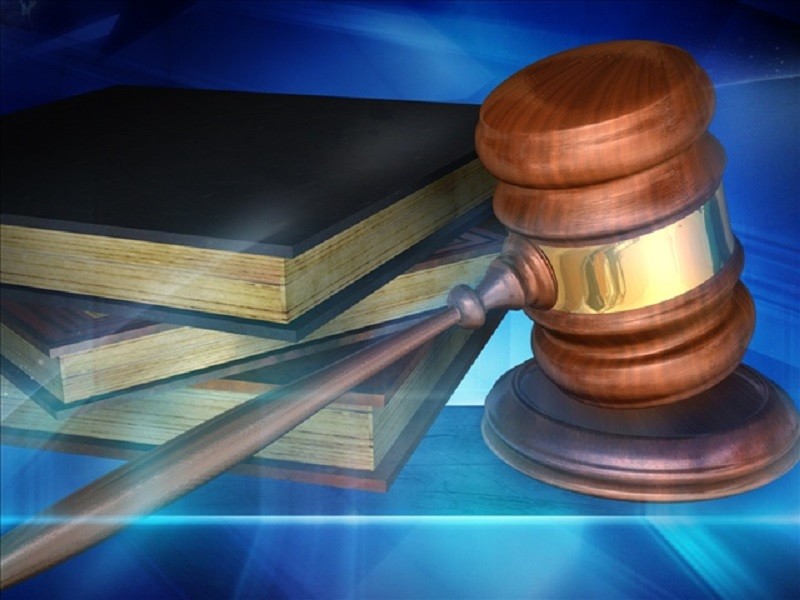Anybody who knows a police officer knows they tend to have their own lingo, much like any profession. Anyone who's ordered at the Varsity in Atlanta can understand how that lingo helps the workers hammer out tasks more efficiently, but might keep the general public a little bit confused.
For your safety, it's probably in your best interest to understand what the police are talking about if they mention a "BOLO" on the local TV news, or what exactly it means when you read an article on a news website that references a "homicide" instead of a "murder."
It's also a good idea to know if a lot of your common driving habits are legal or not, like passing a school bus that has its flashers on and stop sign pushed out.
AccessWDUN spoke with Hall County Sheriff's Deputy Nicole Bailes about some of these topics in an effort to crack some of the codes and give the public a clearer picture the next time they read a story involving law enforcement.
(NOTE: some of the questions and responses have been modified for the sake of clarity and brevity. None of their meanings have been changed.)
Q: What's the difference between a burglary and a robbery?
"We have (burglaries) broken down into sections. This is new. It's going to be burglary in the first degree and burglary in the second degree. Basically, this is going to apply when someone breaks into a residence with the intent to commit a theft ... It means a person enters into a dwelling — whether it be occupied or unoccupied. That's going to be burglary in the first degree. A burglary in the second degree, the content is still the same, but they enter into a vehicle or a building. It can apply to a watercraft, an aircraft or a railroad car. Then you get into a robbery, which is completely different, because that means (thieves) are stealing from a person, in their immediate presence, and that can be broken down into three subsections, whether they steal by force, by intimidation or by sudden snatching."
Q: What's the difference between a murder and a homicide?
"I make this mistake as well. We sometimes get complacent and call a murder a homicide, or a homicide a murder. It gets misconstrued in television as well. Even if you Google these terms, their definitions are very similar. ... Murder is the unlawful, premeditated killing of one human being by another. And then you have the definition of 'homicide,' which is: the deliberate and unlawful killing of another (human) by another (human). So, they sound the same, but then you can go on and use it in the context that murder is actually a form of criminal homicide. ... Homicide doesn't have to be with intent, because you have things like vehicular homicide. You don't have the intent there. It's the result of a negligent act, but not intentional."
Q: What do some of those common acronyms, like BOLO, MVA and APB, mean?
"A BOLO and an APB are pretty much the same. BOLO stands for 'be on the lookout,' and an APB stands for and 'all points bulletin.' We use those when we're trying to broadcast information to our deputies who might be listening (on the police scanner), or we may send these out to surrounding counties or jurisdictions for persons of interest or vehicles of interest. ... We utilize those acronyms as short-hand just to get that information out. ... An MVA is just a 'motor vehicle accident.'"
Q: A common rumor passed down from parent to child, or driver to driver has to do with the speed limit, and how police can't legally give someone a ticket unless the driver is going more than 10 miles per hour over the speed limit. Apparently that applies to most law enforcement, but one agency doesn't have to abide by that rule. Is that true?
"When you look at the code section for speeding, it's going to tell you that 'no county, city or campus (police) officer shall be allowed to make a case based on the use of a speed detection device (radar), unless the speed of the vehicle exceeds the posted speed limit by more than 10 mph.' It doesn't specify that this applies to the Georgia State Patrol or the Motor Carrier Division. Obviously, legislators have been a part of this, and I think this is going to go back to the 1960s, when we had the speed trap laws implemented. ... For (Hall County Sheriff's deputies), we're going to give you that leeway, just to make sure, (in case) our equipment is not calibrated or circumstances like that."
Q: So a Georgia State Patrol officer could write somebody a ticket for going one mph over the speed limit?
"That's correct. Yes they can. Will they do that? I can't say, but probably, they would not. ... However, the exception for (Hall County) is: school zones and historic zones, like Green Street in Gainesville. ... If you're going one mph over the posted speed limits in those zones, (Hall County Sheriff's deputies) could issue a speeding citation."
Q: Can you touch on the "slow poke law" and explain how drivers might be breaking this law without even realizing it?
"The 'slow poke law' is not what it's titled, but it falls under the 'impeding flow of traffic law,' where we have some folks that are a little behind on the way that law was written. Basically, what that says is: If you're driving on a road that has two lanes going in the same direction, the left lane is supposed to be utilized as a passing lane. Anyone in that lane must get out of the way of a faster-moving vehicle approaching from the rear. There are some exceptions to that, ... so you have to use a little bit of common sense. But if you don't get over — and you have multiple cars passing you on the right — then you can be cited for that. We like to get that out there for people: If you're going to be traveling at the posted speed limit, use the right lane."
Q: Can you explain the law related to drivers who pull halfway into an intersection on a green light, waiting to turn left?
"If you have a green light, and you're sitting in the middle of an intersection, and you see traffic backing up, and you remain in the middle of that intersection, you can be cited. We can also cite you for impeding the flow of traffic, or obstructing an intersection, or failure to obey the traffic control device (traffic light). People need to make sure that they stop at the 'stop bar' (the thick white line) at most red lights and not block those intersections."
Q: When it comes to passing school buses, can you go over when it is legal and when it is illegal?
"It's simple. If you approach a school bus from either direction, and it has the red light and the stop sign bar completely out, you must stop. The only exception to this is if you're approaching from the opposite side of the roadway that has a physical divider or a barrier, like grass or a concrete median. Then you don't have to stop. It's just as simple as that."
Q: Can you go over how to use those reversible center turn lanes?
" (The law says:) Whenever a highway or roadway has a central lane in which traffic may enter from either direction for the purposes of making a left turn, no vehicle shall be driven into such central lane except for the purpose of making a left turn, and no vehicle shall enter into such central lane at a location which is more than 300 feet from the location where the vehicle will turn left across one or more lanes of oncoming traffic. No vehicle which has been driven into such a central lane shall be operated in such central lane for more than 300 feet."
Q: Final question, and it's one law enforcement has really been cracking down on. Can you talk about distracted driving laws and some of the ways folks are breaking them?
"Obviously a big one that we like to push with our distracted driving campaign is texting. It always falls underneath that. Sometimes people think that if you're stopped at a stop sign or a red light, you can't be cited for it. We just want to harp on the fact that that's not the case. You can be cited if we can identify that you are texting, replying to an email, reading an article online or Facebook-ing, even if you're at a stop sign or a red light."
















